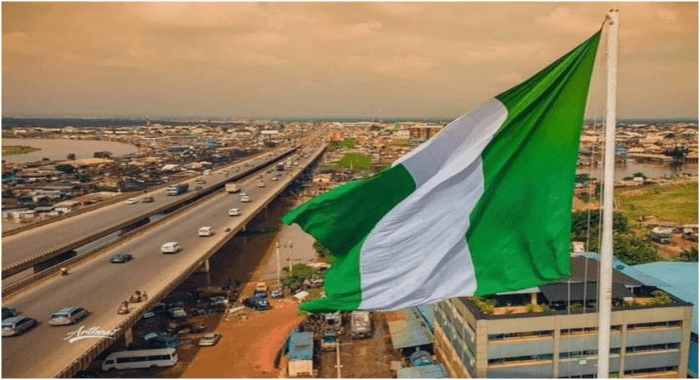National Issues
Nigeria In Changing Times: Rekindling Hope And Optimism (Part 1) -By Usman Sarki
Computing has introduced new possibilities in the work place, and governance has become a matter of tapping into the vistas of technology and exploitation of the opportunities the various platforms have provided. Very soon, elections will be conducted online only; with the mobile telephone playing the role of the ballot box and electoral supervisor all at once. Education will be done remotely whereby classrooms will become obsolete.

“A country whose future is staked upon the intelligence of its Government and its people is an exhilarating spectacle to the better type of man“, John Buchan
Nigeria was a very promising country 63 years ago. It held out hopes and expectations of future greatness and relevance in the progress and advancement of human civilization. Since the dawn of humanity, the area it occupies has always been a part of the evolution and progress of mankind. We have never been an island unto ourselves by way of being completely cut off from human progress.
We have been relating with the outside world since the Pharaonic times in ancient Egypt. We came into contact with Arabian civilisation and Islam as early as the 9th century, and with Europeans and Christianity as early as the 15th century. We ended up becoming absorbed into the European orbit through trade, colonlisation and globalisation from the 19th century.
Today, more than at any time in our history, we have become more intertwined into the fabrics of global affairs through production, exchange and consumption. Our prosperity as a people and a nation largely depends on what we are able to produce and sell abroad. Our daily needs are met through imports of essential goods and services. We travel all over the world to satisfy one need or the other such as seeking medical treatment, educating our children, seeking new commercial opportunities or just plain sight seeing in more pleasant countries and climes. We are indeed witnesses to how the world has changed at phenomenal rates.
Scientific and technological frontiers are being pushed to newer vistas and greater heights beyond human understanding from a few decades ago. Agricultural production, manufacturing, social relations and economic systems are all being shaped and reshaped rapidly by science and technology. Artificial intelligence, satellite remote sensing, information and communication technology, robotics, unmanned aerial vehicles, green technologies, nanotechnology, and a host of other innovations are changing the face of the world and shaping societies as we use to know them beyond recognition.
Competitiveness, innovation and value chain systems are driving productivity to newer levels, whereby the needs of mankind could be met through greatly improved means and resources. Pandemics are being tackled at a faster rate than at any time in history as evidenced by the global responses to the Coronavirus outbreak. Travel has been made faster, easier and more convenient in many parts of the world. Along these general lines of human progress and societal evolution, the ways and manners human societies are organised and managed are also rapidly changing.
Computing has introduced new possibilities in the work place, and governance has become a matter of tapping into the vistas of technology and exploitation of the opportunities the various platforms have provided. Very soon, elections will be conducted online only; with the mobile telephone playing the role of the ballot box and electoral supervisor all at once. Education will be done remotely whereby classrooms will become obsolete. Medicine will be dispensed online and even diagnostic services and treatment of some illnesses will be conducted through remote applications.
Food production, that most essential of all human activities, will be done by machines and intelligent appliances. Efficiency, quality and volume will be the watchwords in this new dispensation in farming. Power generation and supply, water systems development, traveling and transportation, the storage and distribution of goods, etc, will dictate how future societies will be organised. All these things that I have enumerated are actually happening in many parts of the world. The interesting thing to note is that they are taking place within national boundaries and at the behest of the governments and peoples of the countries where they are happening.
Therefore, the global progress and prosperity that we are witnessing today actually have their roots at the national levels, and are impacted upon by the attitudes, dispositions and orientation of the people and their national leaders. Consequently, all these laudable and positive developments are taking place at the behest of governments under the direction of the various appurtenances of the state and in collaboration with organised structures like industry, scientific establishments, the militaries, universities, professional bodies and organisations, youth and students, producers and manufacturers, researchers, bureaucrats, innovators, financial institutions, politicians and administrators, and a host of other stakeholders working in tandem and in collaboration to bring about change and progress in their respective communities, societies and countries.









